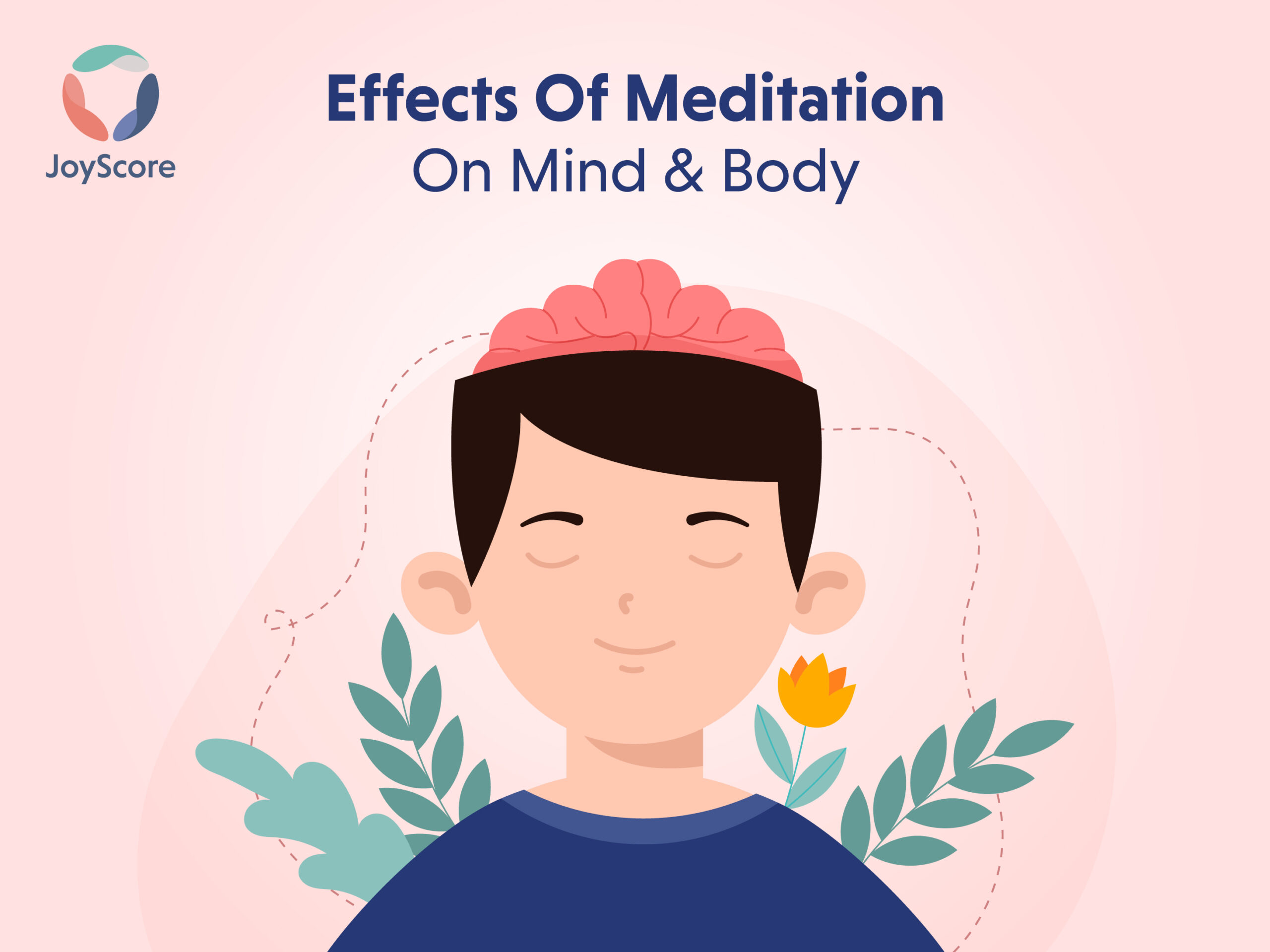Meditation is a practice that has been around for thousands of years, but only recently have we started to understand its positive effects on the human body and mind.
The practice of meditation is used to control the mind and train it to focus on specific things. This could be anything from your breath, an object, or even a mantra. The objective is to empty the mind of all thoughts while focusing on one thing.
When you meditate, you can achieve a lot of benefits. You can reduce stress levels, increase focus and improve your health. Meditation has been proven to strengthen your immune system, slow down the aging process, increase life expectancy and even reduce blood pressure.
If you’re trying to get your first meditation practice going, it can be confusing about what to do. There are so many styles and types of meditation; how do you choose? How can you make it work in your life? How does the brain react when you meditate? We’ll answer all of these.

So, what happens when you meditate?
Effects of meditation on the body
Meditating regularly can lead to lower blood pressure, less muscle tension and chronic pain, and an increased sense of calm. You might feel more energetic or rested after a meditation session, or both. Studies show that people who practice mindfulness meditation may have improved brain functioning and fewer symptoms of depression than those who don’t meditate.
Effects of meditation on the mind
Many people report feeling more relaxed, peaceful, and happy after practicing meditation regularly for several months or years. They also say they feel more in control of their emotions and can handle problems more effectively than before they began meditating.
Here are some of the stunning effects of Meditation.
1. Meditation benefits for the brain
Your brain gets bigger.
When you meditate regularly, studies show that your hippocampus grows in size. This is a part of the brain that’s involved in learning and memory. Another study found that people who meditated had a more gray matter in certain areas of their brain, as well as other areas that deal with emotion and stress.
It makes you smarter.
Studies show that people who meditate have increased attention spans, concentration, and memory retention. One study also found that people who meditated regularly were better at processing information faster than those who didn’t meditate. And a study using an fMRI machine found that regular meditation changed the physical structure of the brains of experienced meditators — specifically, the areas associated with compassion and selflessness grew larger.
It makes you happier!
A recent study suggests that people who practice mindfulness techniques such as meditation literally reboot their brains and feel happier.
2. It acts as an antidepressant to anxiety
Stress can cause serious health issues like hypertension and kidney failure. When practicing meditation on a regular basis, your heart rate slows down, which reduces blood pressure. In addition to this, the neurotransmitters released during mediation are the same ones that reduce stress while they stimulate serotonin production.
When you meditate regularly, you will feel less depressed and anxious than before because your brain will produce more dopamine and GABA, which suppresses negativity in your life. You will also feel happier because you will have a better perspective on things and find positivity in every situation, no matter how bad it is.
3. Improves concentration and attention
When we’re stressed, our minds often jump from one thought to another — whether we’re trying to solve a problem at work or simply get through the day. Meditation teaches you to focus on one thought or object without judgment or distraction, which is an incredibly useful skill no matter what you do for a living.
4. Helps to recover from various types of addiction
There’s a lot of evidence that shows that meditation can help with addiction. It helps regulate emotions, which is very important for people who are addicted.
The fact is people who are addicted often have an imbalance in their brain chemistry that leads them to engage in addictive behavior. Meditation can help rebalance their brain chemistry and regulate the emotions that drive addiction.
It also helps you become more aware of the stressors in your life. When you become aware of those stressors, you can learn how to respond differently to them than before, when acting on impulse.
5. Reduces the blood pressure
Meditation is effective in lowering blood pressure. A study has confirmed that meditation helps to reduce the effects of stress on our health.
It is possible that meditation can help lower blood pressure and reduce the effects stress has on the body in people who are susceptible to it.
6. Improves the quality of sleep
Meditation is not just a way to relax; it’s a way to improve sleep quality. A growing body of evidence shows that meditation can reduce insomnia and restless sleep while boosting the benefits of sleep.

7. You can be in a better mood if you meditate every day.
When you’re trying to get in a better mood, it’s natural to start thinking about what you can do to change your mood. But the first step is realizing that you have the power to control your emotions and moods by controlling your thoughts. You can be happier by simply changing the way you think, and one of the best ways to do that is through meditation.
Treat meditation like a sport or a workout. It may appear difficult at first, but once you get into the habit of doing regular meditations, it becomes easier — and more natural.
8. It improves the immunity power
If we are stressed, the immune system is weakened. The nervous system is activated by stress hormones such as epinephrine, norepinephrine, and cortisol. This can lead to decreased immune cell production, reduced blood flow to the organs.
A 30-minute meditation daily can strengthen your immune system.
To improve your immunity power, you need to control your stress level with different techniques such as yoga and meditation.
If you’re interested in learning more about meditation techniques or yoga practices for stress management or health benefits, download Joyscore App.



